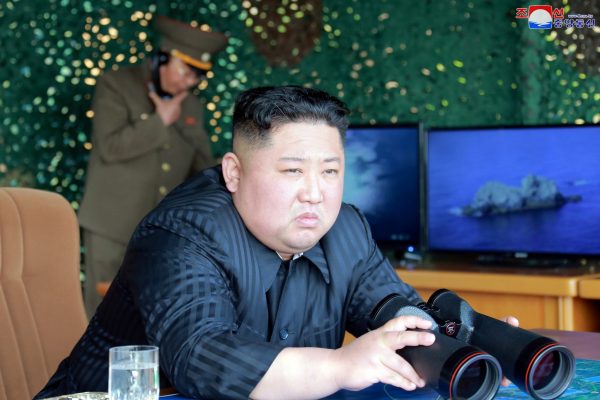Concerns about what motivated the decision aside, by deciding to meet with North Korean leader Kim Jong-un, the President changed the game, perhaps even clearing the path for progress. At the time, the President’s supporters were effusive in their praise for the daring move. Indeed, 18 Republican members of Congress sent a letter to the Chair of the Nobel Peace Prize Committee asserting that Trump should receive the honour if his efforts prove successful.
It has now been a year since the Singapore Summit and the once resounding calls for Nobel consideration have faded. The White House has accomplished very little — not even a small interim step like the previous administration’s Leap Day Agreement of 2012.
The lack of progress is maddening, given that the point of big and bold steps are to provoke change. The United States now finds itself in a very familiar place — one in which Washington and Pyongyang talk right past each other and the North Korean nuclear arsenal continues to quietly advance. With the clock ticking, there are a growing number of issues that stand in the way of a grand bargain.
Negotiations lack a shared definition of ‘denuclearisation’ as it applies to the Korean Peninsula. There is no agreement on which North Korean facilities and installations will be available for the purposes of verification and for how long. There is no understanding about when and if North Korea will join or re-join international weapons agreements like the Non-Proliferation Treaty, the Comprehensive Nuclear-Test-Ban Treaty, the Chemical Weapons Convention, or the Biological Weapons Convention. There is no clear picture of how US military exercises and assets in the region will be altered or withdrawn. There has been little public progress on if or when a formal end to the Korean War will be established.
Where should the Trump administration go from here?
First, President Trump would do well to separate his unorthodox feelings for Kim from the very real security threat that North Korea poses to its neighbours and the world. Personal rapport is important to any negotiation, but directly connecting a personal relationship to a challenge this complex and historically fraught is foolish and bordering on reckless.
Kim is not interested in trading his arsenal for a real estate deal on the North Korean coast. He and his forebears willingly chose pariah status in order to develop their nuclear weapons program. Any agreement to give up this program will not be achieved through personal pleasantries. By making it personal, Trump could perceive a hard-line from Kim as a rejection of friendship. The world might then see that Hell hath no fury like a president scorned.
Second, the United States should refrain from scheduling another leader-level meeting until there are substantive arrangements to formalise. Another summit that produces headlines, but no real commitments would likely break the fragile detente between the United States and North Korea. To keep the process moving forward without pomp and circumstance, Trump might need to send his own ‘beautiful letter’ to Kim explaining that US State Secretary Mike Pompeo and US Special Envoy Stephen Biegun speak on his behalf and should be treated as such.
Third, empowered by the President to do their jobs, diplomatic, legal, and technical experts need to go about the slow and tedious process of hammering out concrete concessions — from both sides. The US negotiating team, with the President’s backing, also needs to establish and stick to clear incentives that they are willing to bring to the table.
The sheer volume of issues suggests that an incremental approach is the wisest course of action. The Trump administration will need to commit itself to a long process, even with no discernible wins on the visible horizon. For its part, North Korea must not assume that US and global patience is infinite. There are more than a few people in Trump’s circle who would welcome the collapse of this process.
Both parties must accept that even with a written deal, implementation requires care and persistence. Obstacles and arguments are inevitable and must be anticipated and dealt with in a business-like manner. North Korea has made commitments in the past that it has not honoured. The United States has also breached its own word in response to North Korean actions, instead of drawing Pyongyang back to the negotiating table. Both sides have much to lose, so both sides must accept the risk of failure. No guts, no glory, remember?
Finally, President Trump and Chairman Kim must realise that there are no more shortcuts to their individual goals. An audacious move may have started this latest negotiating process but regular, old, plodding diplomacy is the only real way to achieve security on the Korean Peninsula.
Alexandra Bell is Senior Policy Director at the Center for Arms Control and Non-Proliferation, Washington DC.

